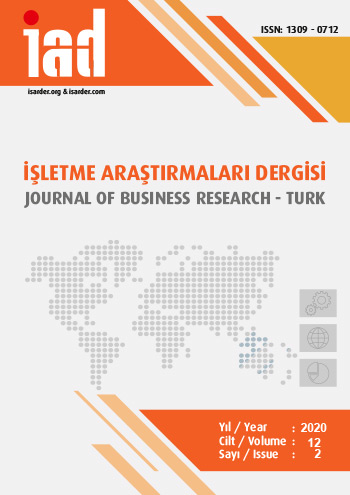Göreli Yoksunluk ve Algılanan Stres Arasındaki İlişkinin İncelenmesi: Akademisyenler Üzerine Bir İnceleme
Anahtar Kelimeler:
Göreli yoksunluk- Algılanan stres- AkademisyenlerÖzet
Amaç – Akademik personelin yaşadığı düşünülen iş yükü, , yetersiz ücret, fiziki çalışma koşullarının yetersizliği, ağır ders yükleri, yurtiçi ve yurtdışı bilimsel çalışmalara katılımı teşvik edecek yeterli parasal kaynağın ve düzenlemenin olmaması, atanma ve yükselme ölçütlerinin sürekli değiştirilmesi, kadro tıkanıklıkları gibi faktörler akademisyenlerde stres ve yoksunluğun dikkate alınması gereken sorunlar olduğu fikrini güçlendirmektedir. Bu nedenle, bu araştırma, akademisyenlerde göreli yoksunluk ve algılanan stres arasındaki ilişkinin incelenmesi amacıyla planlanmış ve yürütülmüştür. Yöntem – Araştırmanın evrenini; Ankara ilindeki iki devlet üniversitesinde çalışmakta olan akademisyenler oluşturmaktadır. Çalışmada Cohen ve diğerleri (1983) tarafından geliştirilen “Algılanan Stres Ölçeği” (ASÖ) ve Callan ve diğerleri (2011) tarafından geliştirilen “Göreli Yoksunluk Ölçeği” kullanılmıştır. Çalışma verileri değerlendirilirken kategorik değişkenler için frekans dağılımı, sayısal değişkenler için tanımlayıcı istatistikler verilmiştir. İki gruba sahip kategorik değişkenler arasındaki farkın incelenmesinde bağımsız örneklem t testinden, ikiden fazla gruba sahip kategorik değişkenler arasındaki farkın incelenmesinde ise “tek yönlü varyans analizi” (ANOVA) kullanılmıştır. İki sayısal değişken arasındaki ilişkinin incelenmesinde ise pearson korelasyon analizinden yararlanılmıştır. Bulgular – Araştırmanın sonuçlarına göre, akademisyenlerin göreli yoksunluk puan ortalamasının yüksek düzeylere yakın olduğu; algılanan stres puan ortalamasının ise yüksek düzeyde olduğu saptanmıştır. Göreli yoksunluk ile algılanan stres arasında pozitif yönde yüksek düzeyde ilişkili bulunmuştur. Tartışma – Göreli yoksunluk ile algılanan stres arasında pozitif yönde yüksek düzeyde ilişkili bulunmuştur. Buna göre göreli yoksunluk arttıkça kişilerin algılanan stres düzeyleri de yükselmektedir. Göreli yoksunluğun sosyal ve algısal bir olgu olduğunu dikkate aldığımızda, bu bulgu beklentiler doğrultusundadır. Bu sonuç ile eşit ve adil olmayan sonuçların algılanışı sonucunda oluşan yoksunluk duygusunun akademisyenlerde strese yol açtığı düşünülebilir.
İndir
Yayınlanmış
Nasıl Atıf Yapılır
Sayı
Bölüm
Lisans

Bu çalışma Creative Commons Attribution-NoDerivatives 4.0 International License ile lisanslanmıştır.





